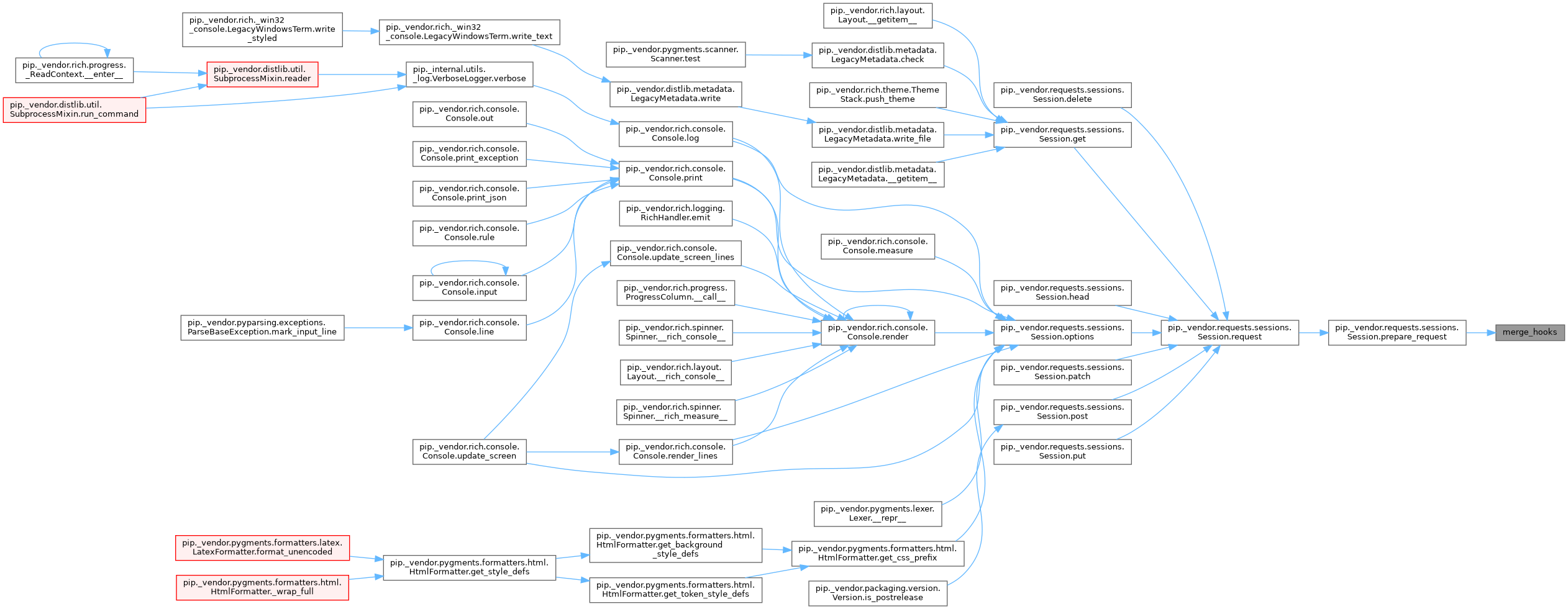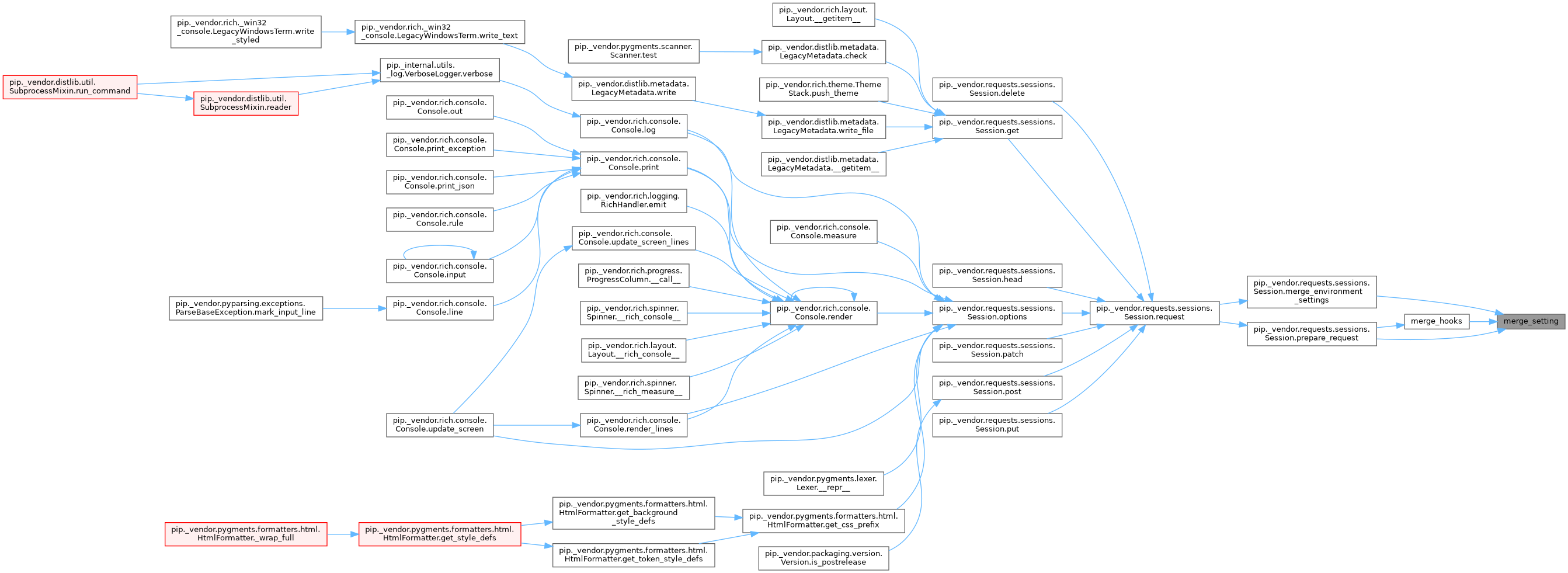Loading...
Searching...
No Matches
pip._vendor.requests.sessions Namespace Reference
Data Structures | |
| class | Session |
| class | SessionRedirectMixin |
Functions | |
| merge_setting (request_setting, session_setting, dict_class=OrderedDict) | |
| merge_hooks (request_hooks, session_hooks, dict_class=OrderedDict) | |
| session () | |
Variables | |
| preferred_clock = time.perf_counter | |
Detailed Description
requests.sessions ~~~~~~~~~~~~~~~~~ This module provides a Session object to manage and persist settings across requests (cookies, auth, proxies).
Function Documentation
◆ merge_hooks()
| merge_hooks | ( | request_hooks, | |
| session_hooks, | |||
dict_class = OrderedDict |
|||
| ) |
Properly merges both requests and session hooks.
This is necessary because when request_hooks == {'response': []}, the
merge breaks Session hooks entirely.
Definition at line 91 of file sessions.py.
91def merge_hooks(request_hooks, session_hooks, dict_class=OrderedDict):
92 """Properly merges both requests and session hooks.
93
94 This is necessary because when request_hooks == {'response': []}, the
95 merge breaks Session hooks entirely.
96 """
98 return request_hooks
99
101 return session_hooks
102
103 return merge_setting(request_hooks, session_hooks, dict_class)
104
105
References i, and pip._vendor.requests.sessions.merge_setting().
Referenced by Session.prepare_request().
Here is the call graph for this function:

Here is the caller graph for this function:

◆ merge_setting()
| merge_setting | ( | request_setting, | |
| session_setting, | |||
dict_class = OrderedDict |
|||
| ) |
Determines appropriate setting for a given request, taking into account the explicit setting on that request, and the setting in the session. If a setting is a dictionary, they will be merged together using `dict_class`
Definition at line 61 of file sessions.py.
61def merge_setting(request_setting, session_setting, dict_class=OrderedDict):
62 """Determines appropriate setting for a given request, taking into account
63 the explicit setting on that request, and the setting in the session. If a
64 setting is a dictionary, they will be merged together using `dict_class`
65 """
66
67 if session_setting is None:
68 return request_setting
69
70 if request_setting is None:
71 return session_setting
72
73 # Bypass if not a dictionary (e.g. verify)
74 if not (
76 ):
77 return request_setting
78
79 merged_setting = dict_class(to_key_val_list(session_setting))
80 merged_setting.update(to_key_val_list(request_setting))
81
82 # Remove keys that are set to None. Extract keys first to avoid altering
83 # the dictionary during iteration.
85 for key in none_keys:
86 del merged_setting[key]
87
88 return merged_setting
89
90
References i.
Referenced by Session.merge_environment_settings(), pip._vendor.requests.sessions.merge_hooks(), and Session.prepare_request().
Here is the caller graph for this function:

◆ session()
| session | ( | ) |
Returns a :class:`Session` for context-management.
.. deprecated:: 1.0.0
This method has been deprecated since version 1.0.0 and is only kept for
backwards compatibility. New code should use :class:`~requests.sessions.Session`
to create a session. This may be removed at a future date.
:rtype: Session
Definition at line 821 of file sessions.py.
821def session():
822 """
823 Returns a :class:`Session` for context-management.
824
825 .. deprecated:: 1.0.0
826
827 This method has been deprecated since version 1.0.0 and is only kept for
828 backwards compatibility. New code should use :class:`~requests.sessions.Session`
829 to create a session. This may be removed at a future date.
830
831 :rtype: Session
832 """
833 return Session()
Variable Documentation
◆ preferred_clock
| preferred_clock = time.perf_counter |
Definition at line 56 of file sessions.py.
Referenced by Session.send().